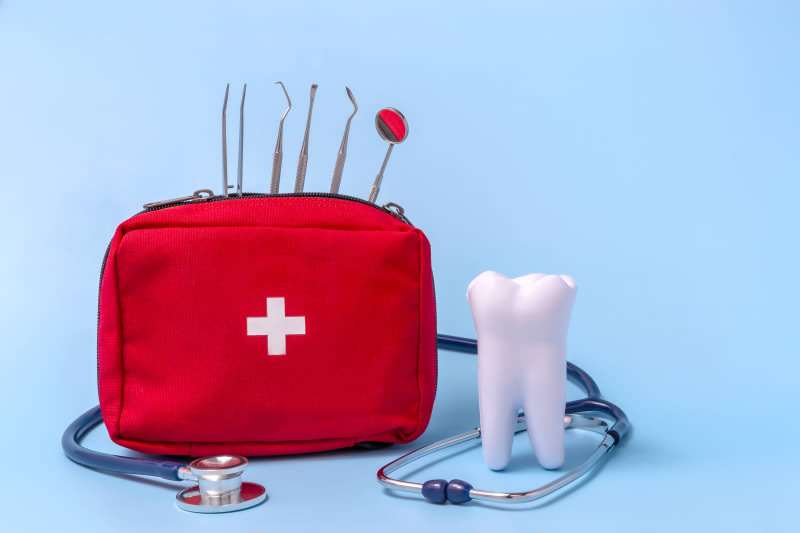
What do you do when experiencing a dental emergency? Here, we give some advice on how to reduce pain and possibly preserve your health until you can see a dentist.
I have a dental emergency. What should I do?
Dental emergencies may take many forms (from a knocked-out tooth to an abscess) and can happen at any time.
The speed with which you act during a dental emergency may influence the outcome. Here, we'll explain a few common dental emergencies and what action you can take to give yourself the best chance of a good result.
1. Identify your dental emergency
Here are some common dental emergencies and what to do if you experience them:
Severe SwellingModerate-to-severe swelling on the face, mouth and neck causing difficulty to swallow or breathe. The face will often appear red or purple and inflamed as bruising may begin to form.
Chipped, Broken or Knocked-Out TeethKnocked-out, chipped, or broken teeth can have jagged edges. There may be parts of the tooth still in the mouth or the whole things plus its root have fallen out.
Try to find the missing pieces of a fractured or chipped tooth and bring it to your appointment. Only hold the tooth by its crown (the part that's visible in your mouth).
Rinse the tooth in water. Do not use soap or chemicals, and do not wrap it in tissue or a towel. Don’t rub or agitate the tooth.
If possible, hold the tooth in the socket it feel from. If not, preserve it and keep it moist by placing it in a container of saliva or milk. A dentist may be able to reattach a lost tooth.
Lost Crown or FillingLost crowns or fillings may leave pieces in the mouth or be entirely lost. Try to locate the crown or filling, and rinse it. Do your best to place it back on the tooth.
2. Use home remedies for pain or swelling
Consider holding an ice pack to your face to minimize pain and swelling. Rinse your mouth with warm water.
3. Stay Calm
Breathe deeply and try to stay calm. Dental emergencies are painful, but they will pass.
4. Contact your dental office immediately.
Call your dental office immediately for any dental emergency. They will make an appointment with you as soon as they are able. At this appointment, they will assess your dental emergency and create an appropriate treatment plan.
5. Consider your treatment options.
Your dentist will explain your treatment options. These may include a crown, tooth extraction, dental implants, or alternatives. They may also provide a referral or recommendation for a specialist if required.
Are you looking for dental care for an emergency?
A dentist will be happy to answer any questions, address pain or other symptoms and explain treatment options in language you can understand.




